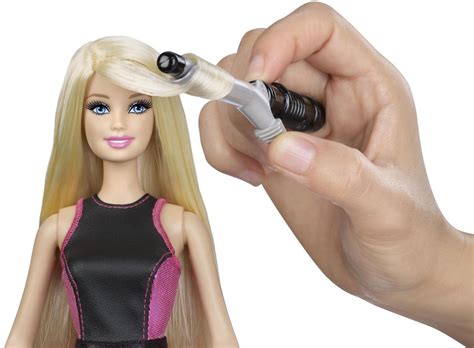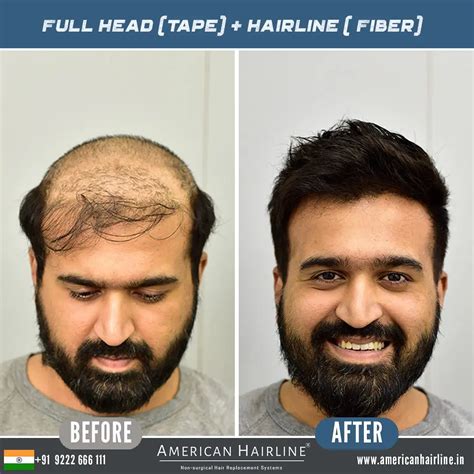Hair loss is a common problem that affects millions of men worldwide. It can be caused by a variety of factors, including genetics, aging, and medical conditions. While there is no cure for hair loss, there are a number of hair replacement options available to help men regain their confidence and improve their appearance.

10 Revolutionary Hair Replacement Innovations
The hair replacement industry is constantly evolving, with new and innovative treatments and techniques being developed all the time. Here are 10 of the most revolutionary hair replacement innovations:
- Laser Hair Therapy: This non-invasive treatment uses low-level laser light to stimulate hair growth. It is safe and effective for all hair types, and it can help to improve hair density and thickness.
- Platelet-Rich Plasma (PRP) Therapy: This treatment involves injecting platelet-rich plasma from the patient’s own blood into the scalp. PRP contains growth factors that can help to stimulate hair growth.
- Stem Cell Therapy: This cutting-edge treatment involves using stem cells to regenerate hair follicles. It is still in the early stages of development, but it has the potential to be a permanent solution for hair loss.
- Nanokeratin Hair Fibers: These tiny synthetic fibers are made of keratin, the same protein that makes up human hair. They are applied to the scalp using a special applicator, and they can help to thicken and volumize thinning hair.
- Scalp Micropigmentation: This cosmetic procedure involves tattooing tiny dots of pigment onto the scalp to create the illusion of short, shaved hair. It is a good option for men who do not want to undergo a surgical hair transplant.
- Hair Cloning: This experimental procedure involves creating new hair follicles from the patient’s own cells. It is still in the early stages of development, but it has the potential to be a revolutionary new treatment for hair loss.
- Robotic Hair Transplantation: This advanced technique uses a robotic arm to transplant hair follicles from the donor area to the recipient area. It is more precise and less invasive than traditional manual hair transplantation.
- 3D Hair Printing: This cutting-edge technology uses 3D printing to create custom-made hair implants that can be attached to the scalp. It is still in the early stages of development, but it has the potential to be a game-changer for the hair replacement industry.
- Virtual Reality Hair Simulation: This innovative tool allows patients to see what they would look like with a new head of hair before undergoing a hair transplant or other hair replacement procedure. It can help patients to make informed decisions about their treatment options.
- Artificial Intelligence-Powered Hair Analysis: This technology uses artificial intelligence to analyze hair loss patterns and recommend personalized treatment plans. It can help patients to get the most effective treatment for their individual needs.
5 Steps to Choosing the Right Hair Replacement Treatment
With so many hair replacement options available, it can be difficult to know where to start. Here are 5 steps to help you choose the right hair replacement treatment for you:
- Determine the cause of your hair loss. This will help you to rule out any underlying medical conditions that may be causing your hair loss.
- Consider your lifestyle and budget. Some hair replacement treatments are more time-consuming and expensive than others. Choose a treatment that fits your lifestyle and budget.
- Get a consultation with a hair replacement specialist. A qualified hair replacement specialist can help you to determine the best treatment option for your individual needs.
- Do your research. There are a lot of hair replacement treatments available, so it is important to do your research before making a decision. Read reviews, talk to other patients, and ask your doctor for recommendations.
- Be realistic about your expectations. Hair replacement is not a miracle cure. It can help to improve your appearance and give you more confidence, but it is important to have realistic expectations about what it can do.
Table 1: Comparison of Hair Replacement Treatments
| Treatment | Cost | Time Commitment | Results |
|---|---|---|---|
| Laser Hair Therapy | $100-$500 per treatment | 1-2 treatments per week for 6-12 months | Gradual improvement in hair density and thickness |
| PRP Therapy | $500-$2,000 per treatment | 3-6 treatments over 6-12 months | Gradual improvement in hair density and thickness |
| Stem Cell Therapy | $10,000-$20,000 per treatment | 1-2 treatments | Potential for permanent hair growth |
| Nanokeratin Hair Fibers | $20-$50 per month | 1-2 applications per day | Temporary thickening and volumizing of hair |
| Scalp Micropigmentation | $500-$1,500 per treatment | 1-3 treatments | Illusion of short, shaved hair |
| Hair Cloning | $10,000-$20,000 per treatment | 1-2 treatments | Potential for permanent hair growth |
| Robotic Hair Transplantation | $4,000-$15,000 | 1-2 treatments | Permanent hair growth |
| 3D Hair Printing | $5,000-$10,000 per treatment | 1-2 treatments | Permanent hair growth |
| Virtual Reality Hair Simulation | $100-$500 | 1-2 hours | Visualize what you would look like with a new head of hair |
| Artificial Intelligence-Powered Hair Analysis | $50-$150 | 1-2 hours | Personalized treatment recommendations |
Table 2: Pros and Cons of Hair Replacement Treatments
| Treatment | Pros | Cons |
|---|---|---|
| Laser Hair Therapy | Non-invasive, safe, and effective for all hair types | Gradual results, may not be effective for all types of hair loss |
| PRP Therapy | Natural and safe, can help to improve hair density and thickness | Requires multiple treatments, may not be effective for all types of hair loss |
| Stem Cell Therapy | Potential for permanent hair growth | Expensive, still in the early stages of development |
| Nanokeratin Hair Fibers | Temporary thickening and volumizing of hair, easy to apply | May not be suitable for all hair types, can be messy |
| Scalp Micropigmentation | Illusion of short, shaved hair, no downtime | Permanent, may not be suitable for all skin types |
| Hair Cloning | Potential for permanent hair growth | Expensive, still in the early stages of development |
| Robotic Hair Transplantation | Permanent hair growth, precise and less invasive than traditional manual hair transplantation | Expensive, downtime required |
| 3D Hair Printing | Permanent hair growth, custom-made hair implants | Expensive, still in the early stages of development |
| Virtual Reality Hair Simulation | Visualize what you would look like with a new head of hair | No physical results, may not be accurate |
| Artificial Intelligence-Powered Hair Analysis | Personalized treatment recommendations | May not be accurate, requires data input |
Table 3: Pain Points for Men with Hair Loss
| Pain Point | Motivation |
|---|---|
| Lack of confidence | Social anxiety, depression |
| Reduced self-esteem | Difficulty finding a job, dating |
| Feeling unattractive | Withdrawal from social activities |
| Loss of masculinity | Difficulty finding a partner |
| Fear of being judged | Avoidance of social situations |
Table 4: Benefits of Hair Replacement for Men
| Benefit | Outcome |
|---|---|
| Improved confidence | Increased social interaction, reduced anxiety and depression |
| Enhanced self-esteem | Higher job satisfaction, greater success in dating |
| Increased attractiveness | More compliments, greater attention from potential partners |
| Restored masculinity | Improved sense of self, increased confidence in social situations |
| Reduced fear of being judged | More willingness to participate in social activities |
Conclusion
Hair loss is a common problem that affects millions of men worldwide. While there is no cure for hair loss, there
